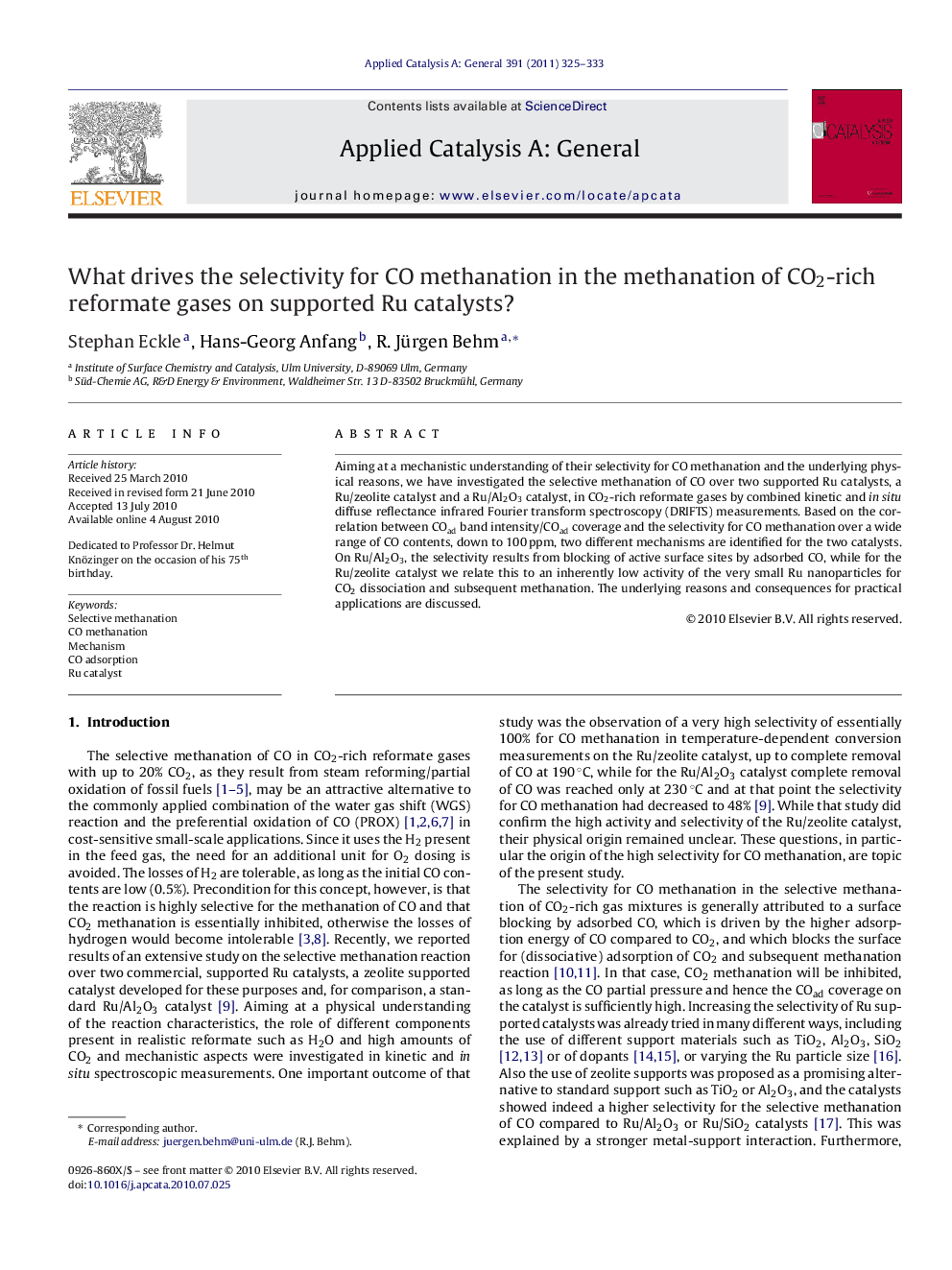| Article ID | Journal | Published Year | Pages | File Type |
|---|---|---|---|---|
| 41653 | Applied Catalysis A: General | 2011 | 9 Pages |
Aiming at a mechanistic understanding of their selectivity for CO methanation and the underlying physical reasons, we have investigated the selective methanation of CO over two supported Ru catalysts, a Ru/zeolite catalyst and a Ru/Al2O3 catalyst, in CO2-rich reformate gases by combined kinetic and in situ diffuse reflectance infrared Fourier transform spectroscopy (DRIFTS) measurements. Based on the correlation between COad band intensity/COad coverage and the selectivity for CO methanation over a wide range of CO contents, down to 100 ppm, two different mechanisms are identified for the two catalysts. On Ru/Al2O3, the selectivity results from blocking of active surface sites by adsorbed CO, while for the Ru/zeolite catalyst we relate this to an inherently low activity of the very small Ru nanoparticles for CO2 dissociation and subsequent methanation. The underlying reasons and consequences for practical applications are discussed.
Graphical abstractThe removal of CO from H2-rich gas mixtures via selective methanation is an attractive way for producing CO-free fuel cell feeds from CO2 containing reformate. Comparing two supported Ru catalysts, we demonstrate by combined kinetic and in situ IR measurements that the high CO selectivity of a Ru/zeolite catalysis is not driven by a blocking CO adlayer, but by its inherent inactivity towards CO2 dissociation and methanation.Figure optionsDownload full-size imageDownload high-quality image (106 K)Download as PowerPoint slideResearch highlights▶ Methanation is an attractive way to produce CO-free fuel cell feeds from CO2 containing reformates. ▶ On Ru/Al2O3 the selectivity for CO reforming is determined by COad induced site blocking. ▶ Ru/zeolite shows 100% selectivity even at low CO partial pressures and COad coverages. ▶ Here CO selectivity is due to an inherent low activity for CO2 dissociation.
